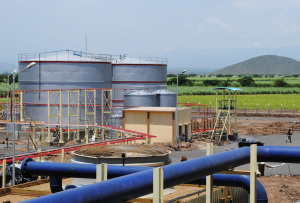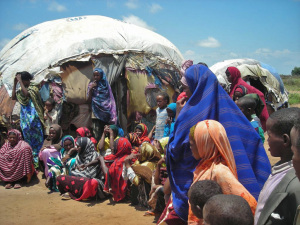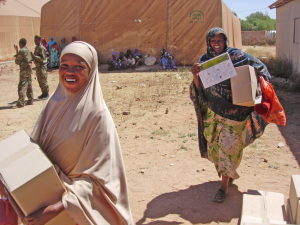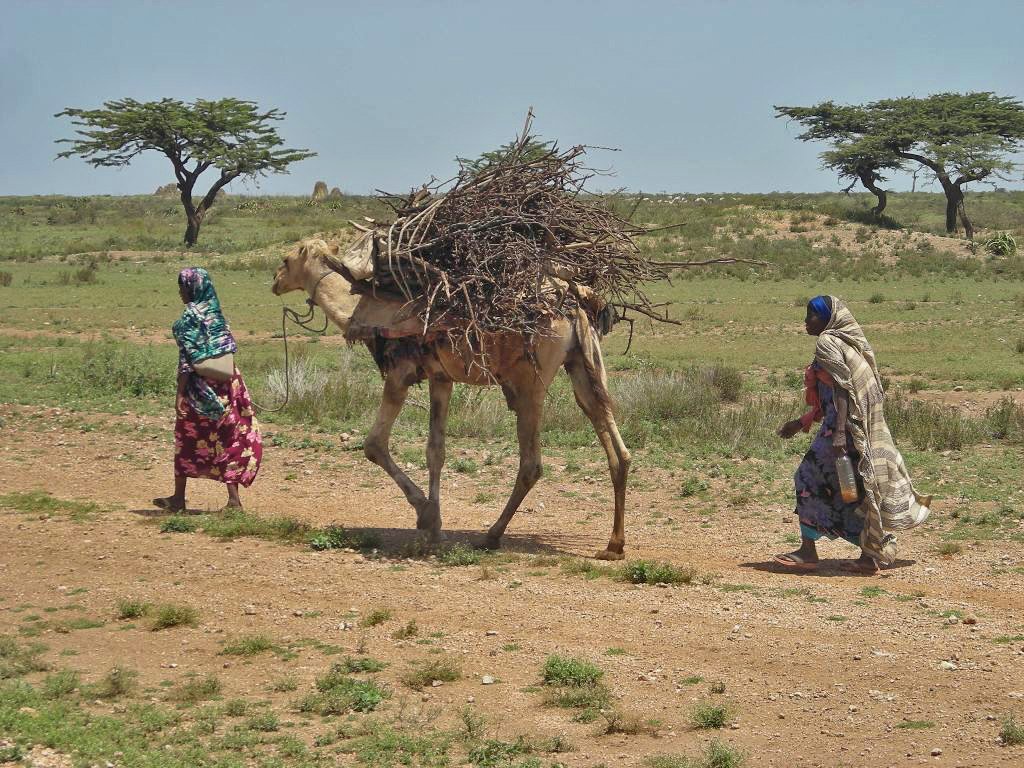The government-owned sugar estates in Ethiopia were traditionally in the south, an optimal region for the farming of sugar cane. For years, the sugar industry struggled to find a solution for the molasses produced as a waste product in sugar production. At that time, molasses was dumped in rivers or on land. Concerned by the potential for large-scale environmental destruction, Sweden, Norway and Denmark helped build distilleries to turn molasses into ethanol. In the early 2000s, a new distillery was developed in northern Ethiopia, near to the Nile.

Once the sugar industry began producing ethanol, a market needed to develop to sell it. In 2004, Project Gaia Inc (PGI) and its sister organization, Gaia Association (Gaia) began successful pilot studies in Addis Ababa and soon began cookstove interventions in several UNHCR refugee camps. The pilot studies conducted in the various camps showed that certain populations were better suited than others for the stoves. In both the Sudanese and Eritrean camps, the refugees cooked very large injera (flatbread) or large pots of porridge- cooking not optimal for the stove. Even with the new stoves, these camps still collected firewood, although not as frequently. In contrast, the stoves were best-suited to the cooking in the Somali Jijiga camps and were able to entirely eliminate the need for gathering wood, due in large part to the smaller injera sizes. In 2006, PGI and Gaia officially launched a long-term intervention in these camps and scaled up, reaching 100% stove and fuel coverage in the largest of the three camps.

After operating the stove program until the summer of 2008 and serving over 4,000 refugee families, Gaia was informed that ethanol from the distilleries would no longer be available for the intervention. The sugar industry diverted their ethanol market to go towards transportation fuel. Although the technology required to blend fuels has a high upfront capital cost, the idea was that the government would save funds by reducing the amount of oil imported. The industry entered into a contract whereby the majority of their ethanol went into the transport sector. Consequentially, they had little left over to sell for the use of clean cookstoves, even though the market for stove fuel is greater than the market for fuel blending in Ethiopia due to a number of factors.
UNHCR and Gaia engaged in intensive negotiations with the government to try to prevent the interruption. Although the government has always been supportive of Gaia and UNHCR’s work, the contract was already signed with the gas companies. This contract mandated the production of six million liters of ethanol. After this amount was allocated, no ethanol was left for the refugee camps until the distilleries could produce more ethanol. A number of distilleries were slated to come on line in the subsequent years.

Over time, Gaia and partners built over half a million liters of storage in the refugee camps. To prepare for the impending shortage, all the tanks were filled to capacity. This allowed Gaia to continue to supply ethanol to refugees until early 2009. After this supply ran out, all of the clean cookstoves were taken back, cleaned, repaired, and stored. Most of these stoves had been used heavily since 2004, however they were still in excellent condition, due to the durable design and the care taken by the refugees. Ethanol stoves were replaced with improved kerosene and wood stoves during the fuel shortage. By the end of 2009, the distilleries were able to provide Gaia a quarter of a million liters of ethanol. Gradually, this number increased throughout 2010. The stoves were slowly redistributed as more and more ethanol was produced. The distilleries were finally producing enough ethanol to now provide both the transportation industry and the refugee camps with fuel. Gaia is currently implementing programs for over 4,500 families, with over two million liters of fuel annually – and is expanding to new regions and camps. The average family size in the Somali camps is nine- which represents a direct impact on 40,500 each year.
The biggest issue in Ethiopia currently is producing enough ethanol to power all of the stoves. Ethiopia intends to go from a significant sugar producer, to a major global sugar producer, exporting to Europe and all over the world. This increase in sugar production will produce more molasses, and subsequently, more ethanol. Ethiopia has also recently invested in building yet another larger distillery, which is nearly complete. In 2015, a major focus will be producing enough ethanol responsibly to fuel as many stoves as possible. In the future, PGI and Gaia hope the ethanol market will grow to include both humanitarian and commercial markets.
By Nick Lorenz

